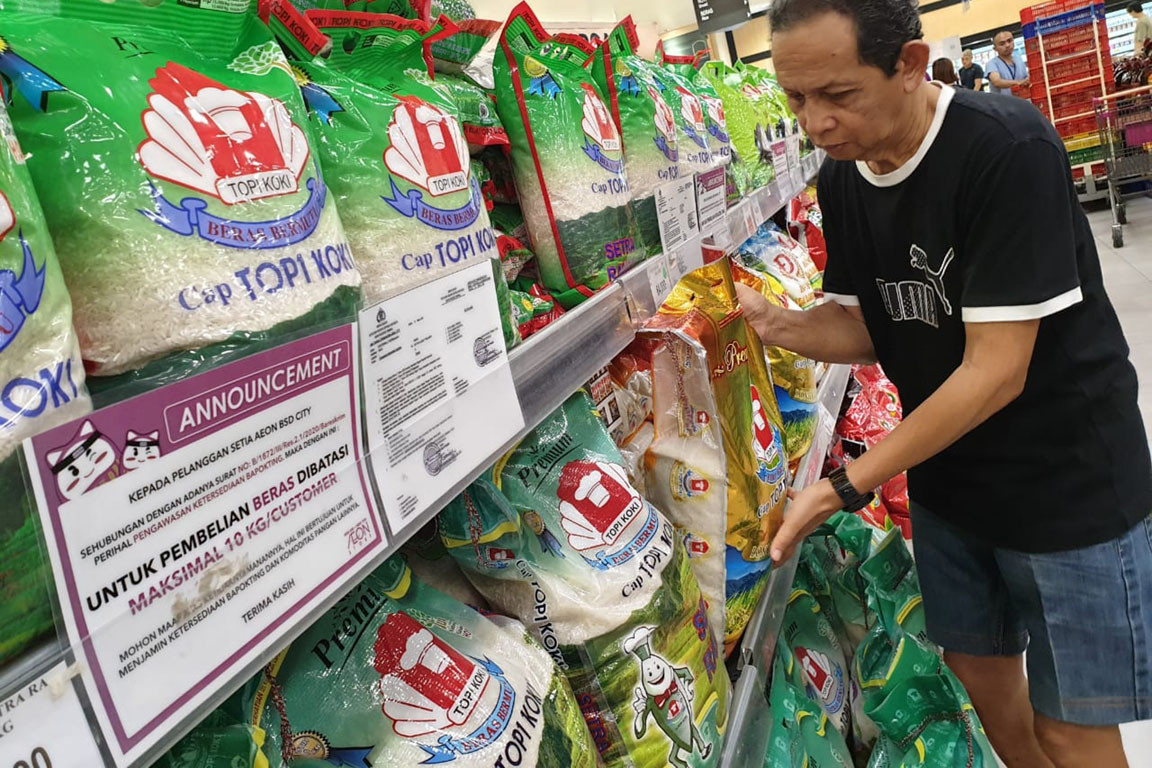Popular Reads
Top Results
Can't find what you're looking for?
View all search resultsPopular Reads
Top Results
Can't find what you're looking for?
View all search resultsBulog asks for additional Rp 10 trillion to buy rice
The price of medium quality rice is averaging Rp 10,202 per kilogram, about 8 percent higher than the retail price ceiling (HET).
Change text size
Gift Premium Articles
to Anyone
T
he State Logistics Agency (Bulog), a governmental body responsible for securing the staple food supply, plans to ask for an additional Rp 10 trillion (US$637 million) from the government to buy rice from farmers to augment rice stocks.
The agency’s director of operations and public service, Tri Wahyudi Saleh, said in Jakarta on Wednesday that the extra funds would be enough to procure about 1.2 million tons of rice from the farmers.
Tri said that the increase in prices of milled rice and unhusked rice would make rice procurement more costly. With the high price, the procurement would be too costly if the agency had to borrow from banks, he added.
The price of medium quality rice is averaging Rp 10,202 per kilogram, about 8 percent higher than the retail price ceiling (HET). The price of unhusked rice is Rp 4,977 per kilogram, 17 percent higher than the government’s reference price (HPP).
“We hope the government will give a stimulus for additional funds to buy husked and unhusked rice,” Tri said in an online discussion on Wednesday. “With the government’s permission, we will propose it at the limited coordination meeting so that Bulog can get the opportunity to buy as much as it can above the HPP.”
The government has asked the agency to raise stocks of basic commodities to control the rising staple food prices, including rice, to anticipate both surging demand during Ramadan and Idul Fitri and logistical disruptions due to large-scale social restrictions (PSBB).
Between March and May, the Agriculture Ministry estimates the demand for rice will total 7.6 million tons. The rice harvest reaches its peak in April, and production is expected to exceed demand by 8.3 million tons by the end of May.
However, consumption tends to rise by 3 percent in the period leading up to Ramadan, set to take place on April 23, and by 20 percent leading up to Idul Fitri on May 24, according to a survey by the Agriculture Ministry’s Food Security Agency. Bulog’s sales usually rise by 10 percent over the period.
The introduction of large-scale social restrictions in Greater Jakarta, considered the nation’s COVID-19 epicenter, may pose a challenge to the government’s plan.
“We have prepared a banner for Bulog logistics [shipments] saying that the goods inside belong to the agency,” said Tri. “This was very helpful when we distributed sugar and rice from Lampung to Jakarta. We were prioritized by the ASDP [state-owned ferry operator] and we were escorted by the local police traffic unit.”
The Jakarta and West Java administrations have suspended public activities and have imposed limitations on transportation for 14 days until late April to slow the spread of coronavirus.
As of Tuesday, Jakarta, which accounts for about 20 percent of the national rice market, had confirmed 2,335 cases of COVID-19 – nearly half of the total confirmed cases nationwide.
Not all staple food supplies are distributed by Bulog. As private retailers also take part in the distribution of staple food, they should maintain product quality despite logistical disruption due to the government’s measures to contain the fast-spreading coronavirus, said Center for Indonesian Policy Studies researcher Galuh Octania.
“Even before the introduction of large-scale social restrictions, some distributors complained about delays,” Galuh said in the same online talk on Wednesday. “The shipment of food commodities usually takes a day, but it was delayed by up to three days for various reasons, such as drivers’ reluctance to work or fear of getting stopped [by authorities].”










